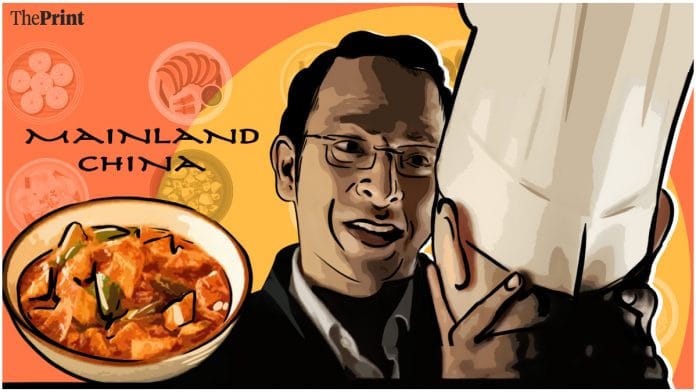There are some evergreen advertisements; the kind of campaigns that fit into a culture so well that a brand needn’t go back to the drawing board to craft a new campaign for decades on end. Some classic examples include Vicco turmeric cream ads—Vicco turmeric, nahi cosmetic jingle—and Amul doodh peeta hai India.
Mainland China’s ads are nowhere near this category, not even in their wildest dreams. And yet, the restaurant chain has decided to rehash a 12-year-old campaign to annoy us with their directionless ads again.
One among them is of a man in the restaurant, who angrily asks to see the chef, only to kiss him near the lips and thank him for the delicious meal he has been served.
While the desire to kiss the one who has prepared a stupendous meal for you is a good creative device to put your point forth, the way the ad has been directed is in poor taste, and not fashionable with the times at all.
For one, the man in the ad is aggressive and takes the chef by surprise when he forcefully kisses him. It’s very uncomfortable to see because it borders on sexual assault. The same story could’ve been told in a different way, the kiss could’ve been the crescendo of a different set-up that might have saved the ad.
Also Read: Everest’s Chhole Masala ad reminder of 2000s’ commercials. Same league as Feviquick, Havells
Mainland China’s other campaign
The other ad is set in a corporate world with four executives discussing food using a weird corporate word-play. It’s an ad 90 per cent of India won’t be able to understand, and the fraction that does will find it outdated and unfunny. If I was the brand manager, sanctioning this ad would’ve been my best-kept secret. People could’ve held me at ransom by threatening to leak this ad and bringing it back to public memory.
It’s surprising that the brand has decided to dig this particular ad from 6 feet under and I can’t imagine it will do anything for the restaurant chain.
Few restaurant chains in India launch TVC campaigns. One is Behrouz Biryani, a super hit ad with 14 million views on YouTube. It focuses on the origin story of Behrouz and ties the ad up with a brilliant line: ‘if a biryani was worth a war, it’s definitely worth a try’. A month ago, Faasos also launched a campaign ‘Boring hata, Faasos manga‘. Another ad with 4 million views on YouTube within a month.
An average food commercial also focuses on close-up shots of food that can make one salivate just by watching it unfold on the screen and rouse an impulse to order from the restaurant/pay it a visit over the weekend. Mainland China ad does nothing like it.
Also Read: Pepsi recreating Cindy Crawford’s ’92 campaign shows Indian cola ads have lost their fizz
Changed times
Mainland China should realise that the world has completely changed in the past 12 years.
For a junk food brand, especially one that calls itself ‘Mainland China’, the number one objective should’ve been to cut its losses by establishing a long-formed trust relationship with its customers at a time when Chinese or oriental cuisine restaurants are popping up everywhere.
With the India-China relationship in the pits, many Indians were recently seen boycotting Chinese goods—even TVs were thrown off balconies. Union Minister Ramdas Athawale had called for a boycott of Chinese food, and in the middle of the Covid-19 pandemic, such turbulence must’ve caused problems for Chinese food chains, which makes it even more essential for a brand named ‘Mainland China’ to establish a new customer connection.
Like Maggi and other brands, an informative ad on their food having a controlled amount of MSG would make the food sound much more appetising.
This article is part of the Vigyapanti series, which reviews Indian vigyapans aka advertisements.
(Edited by Srinjoy Dey)






